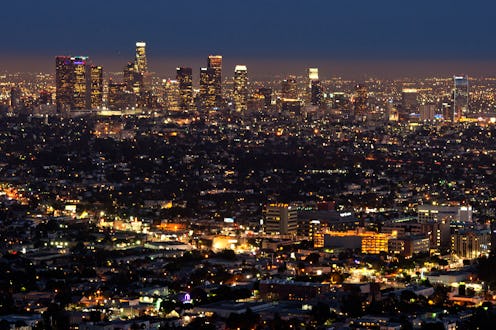News
California Faced Some Significant Voting Issues
A day after Hillary Clinton gave a victory speech at a warehouse in Brooklyn, some California voters are crying foul after scenes of "chaos" reigned at some of the state's polling places. From initial reports, it looks like voting problems in California led to a lot of confusion. According to reporting from The Los Angeles Times, many precincts seemed to be unable to keep up. In Los Angeles County alone, 4,700 polling stations have to process the personal information of close to 4.9 million registered voters. That is a complicated bureaucracy to manage with a lot of moving parts, even before taking into account that the last day that voters can change their party preference is 15 days before the election. That may have lead to a pretty sizable amount of confusion at the county level, which handles voter affiliation and registration.
Sharokina Shams, a reporter at KCRA 3 in Sacramento, highlighted information from polling firm Political Data, Inc., which offers some insight into the magnitude of the problem. According to its polling of independent vote-by-mail registered voters (in this case, "No Party Preference" and not supporters of the American Independent Party), 40 percent intended to or had anticipated receiving a regular Democratic ballot for this election, but only 15 percent actually did.
Citizen reaction to the trouble at ballot boxes was measured. Brandon Silverman, 29, told The Los Angeles Times: “I tend to agree with most of the Bernie supporters who are disappointed in the media’s handling of the superdelegate counts, but I tend to shy away from the people saying it’s ‘stolen’ or ‘rigged.’ I’d like to not think the worst, but at a certain point you think, is it a coincidence?” Silverman is a Sanders supporter who was given a provisional ballot and told that the machine to count the regular ballots was out of order. He said he was able to vote using a normal Democratic ballot after a 45-minute wait.
Kalley Thompson, an early voter in Sacramento County, told KCRA 3: "I think our voting process could definitely be reformed to be more efficient," but then mentioned that this is what provided some of the motivation to participate in the election process in the first place. “I think we have to do the best with what we can right now and that means turning out to vote.”
Without getting into partisan politics, perhaps one of the strongest arguments for abolishing private political fundraising is freeing local party structures from having to run elections on a volunteer and donation-based effort. That may make elections run smoother. Public financing of elections means that local organizations will be able to rely on a steady budget, quarter after quarter, and can divert some resources away from fundraising efforts toward upgrading their infrastructure and having an appropriate number of salaried staff. Taxpayer-financed elections — or campaign finance reform, as it is known by insiders — is an idea supported by the ACLU. Regardless of what an ideal, open, efficient voting infrastructure would look like, it appears that there were a fair amount of voters in the Golden State who walked away from their polling places with a sour taste in their mouths.
